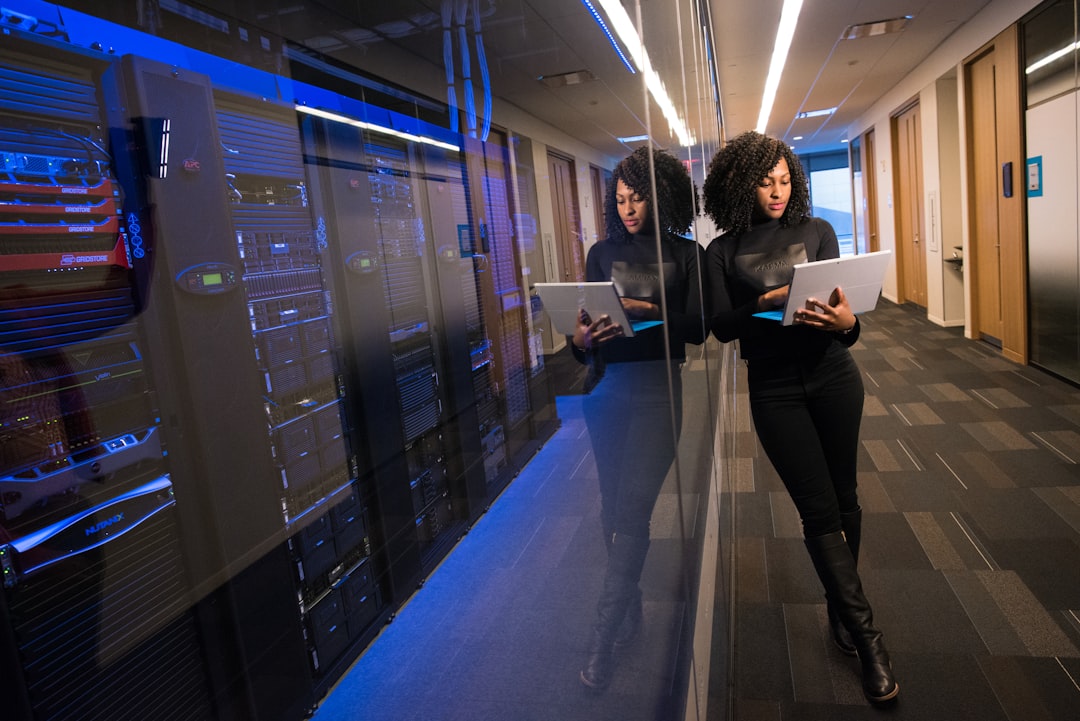Unlock encrypted content
Please enter your SSCE key to initiate on-the-fly decryption.
Decryption key: (Click cancel if you don't have the key)
Copied link to clipboard.
This feature is unavailable for free accounts. Upgrade now and enjoy all Premium benefits.
Go Premium!
This feature is unavailable for free accounts. Upgrade now and enjoy all Premium benefits.
Go Premium!
Please open this page in browser ( Google Chrome or Safari ) to use this feature.
Open In Browser
Advanced Technologies Shaping the Future: Exoplanets, Mind Uploading, and More.
Random related video for this blog.
Copied share link to clipboard.
The world of technology is constantly evolving, and with each passing day, new advancements are being made that push the boundaries of what we thought was possible. From the discovery of exoplanets to the development of brain-machine interfaces, these breakthroughs are reshaping our understanding of the universe and opening up exciting possibilities for the future. In this article, we will explore some of the most cutting-edge technologies, including exoplanet exploration, mind uploading, advanced metadata management, bioprinting, cloud computing services, extraterrestrial data transfer, blockchain technology, and brain-machine interfaces.
Exploring Exoplanets and Habitability
Exoplanets, or planets that orbit stars outside our solar system, have captured the imagination of scientists and space enthusiasts alike. With the help of advanced telescopes and space missions, researchers have been able to identify thousands of exoplanets, some of which may be potentially habitable. The search for habitable worlds is driven by the desire to find places where life could exist beyond Earth. The discovery of exoplanets has provided valuable insights into the diversity of planetary systems and has challenged our preconceived notions about the conditions required for life. By studying the atmospheres of exoplanets, scientists can analyze the presence of key elements such as water, oxygen, and methane, which are essential for supporting life as we know it. This knowledge allows us to better understand the conditions necessary for habitability and provides a framework for future exploration.Mind Uploading and the Future of Consciousness
Mind uploading, also known as whole brain emulation, is an ambitious concept that seeks to transfer a person's consciousness from their biological brain to a digital substrate. This technology raises profound questions about the nature of identity, consciousness, and what it means to be human. While mind uploading is still in the realm of science fiction, recent advancements in neuroscience and artificial intelligencehave brought us closer to the possibility of replicating the human mind in a digital format. The idea behind mind uploading is to create a digital replica of a person's brain, including its structure and function. This digital replica, often referred to as a substrate-independent mind, would retain the memories, thoughts, and personality of the individual. The implications of mind uploading are vast, ranging from the potential for immortality to the ability to transfer one's consciousness to a robotic body or virtual reality environment.
Mobile File Sharing and Advanced Metadata Management
In today's interconnected world, the need for efficient and secure file sharing is more important than ever. Mobile file sharing has become a crucial tool for individuals and businesses alike, enabling seamless collaboration and information exchange. With the increasing amount of data being generated, managing and organizing files has become a complex task. This is where advanced metadata management comes into play. Metadata refers to the information about a file, such as its name, size, creation date, and author. By utilizing advanced metadata management techniques, users can easily search, categorize, and retrieve files based on specific criteria. This not only enhances productivity but also improves data security by allowing for granular access control and encryption of sensitive information.Sharing Sensitive Data and Bioprinting
The sharing of sensitive data presents unique challenges in terms of security and privacy. Traditional methods of file sharing often rely on encryption and secure protocols to protect sensitive information during transit. However, advancements in blockchain technology have opened up new possibilities for secure and decentralized data sharing. Blockchain technology, most commonly associated with cryptocurrencies, is a distributed ledger system that allows for transparent and tamper-proof record-keeping. By leveraging blockchain, sensitive data can be securely shared among authorized parties without the need for intermediaries. This ensures that data remains private and tamper-proof, reducing the risk of unauthorized access or data breaches. Another fascinating technological development is bioprinting, which involves the fabrication of three-dimensional biological structures using living cells. This groundbreaking technology has the potential to revolutionize healthcare by enabling the production of functional organs, tissues, and implants. Bioprinting holds promise in areas such as regenerative medicine, drug discovery, and personalized healthcare.Cloud Computing Services and Extraterrestrial Data Transfer
Cloud computing services have become an integral part of our digital lives, offering scalable and flexible storage solutions. With the advent of cloud storage providers like FileLu, individuals and businesses can securely store and access their files from anywhere in the world. These services not only provide convenience but also offer advanced features such as automatic camera uploads, file encryption, and large file transfer capabilities. While cloud computing services have transformed the way we manage and store data on Earth, they also have the potential to revolutionize extraterrestrial data transfer. As space exploration continues to expand, the need for efficient and reliable communication between spacecraft and Earth becomes crucial. Cloud-based solutions can enable seamless data transfer and storage, allowing for real-time analysis and collaboration among scientists and engineers.Brain-Machine Interfaces and the Future of Human-Computer Interaction
Brain-machine interfaces (BMIs) are devices that establish a direct communication pathway between the brain and an external device, such as a computer or prosthetic limb. These interfaces hold tremendous potential for enhancing human capabilities and improving the quality of life for individuals with disabilities. By decoding the electrical signals generated by the brain, BMIs can enable individuals to control external devices using their thoughts. This technology has already shown promise in applications such as neurorehabilitation, enabling patients with paralysis to regain mobility. In the future, BMIs could enable seamless interaction between humans and machines, allowing for direct brain-to-computer communication and the development of advanced prosthetics and virtual reality systems. In conclusion, the advancements in technologies such as exoplanet exploration, mind uploading, advanced metadata management, bioprinting, cloud computing services, extraterrestrial data transfer, blockchain technology, and brain-machine interfaces are reshaping our understanding of the universe and opening up exciting possibilities for the future. These technologies have the potential to revolutionize various fields, from space exploration to healthcare and human-computer interaction. As we continue to push the boundaries of what is possible, it is essential to consider the ethical, social, and legal implications of these advancements to ensure a future that benefits all of humanity.Frequently Asked Questions (FAQs)
Question: How can I securely share sensitive data? Answer:
One way to securely share sensitive data is by utilizing blockchain technology, which provides a decentralized and tamper-proof platform for data sharing. By leveraging blockchain, sensitive data can be securely shared among authorized parties without the need for intermediaries, ensuring privacy and reducing the risk of unauthorized access or data breaches.
Question: What are some practical applications of bioprinting? Answer:
Bioprinting has practical applications in various fields, including regenerative medicine, drug discovery, and personalized healthcare. In regenerative medicine, bioprinting can be used to fabricate functional organs, tissues, and implants, potentially revolutionizing the treatment of organ failure and tissue damage. In drug discovery, bioprinted tissues can be used to test the efficacy and toxicity of new drugs, reducing the need for animal testing. Additionally, bioprinting can enable personalized healthcare by allowing the production of patient-specific implants and tissues.
Question: How can cloud computing services aid in extraterrestrial data transfer? Answer:
Cloud computing services can play a crucial role in extraterrestrial data transfer by providing scalable and reliable storage solutions. As space exploration expands, the need for efficient and real-time communication between spacecraft and Earth becomes crucial. Cloud-based solutions can enable seamless data transfer and storage, allowing for real-time analysis and collaboration among scientists and engineers. These services can also provide advanced features such as automatic camera uploads, file encryption, and large file transfer capabilities, ensuring the secure and efficient transfer of data across vast distances.
Case Studies Case Study 1: Exoplanet Exploration and the Search for Habitable Worlds Case Study 2: Mind Uploading and the Future of Consciousness Case Study 3: Blockchain Technology in Secure Data Sharing Case Study 4: Bioprinting and its Applications in Healthcare Case Study 5: Cloud Computing Services in Space Exploration To learn more about file transfer, cloud storage, and other related services, visit FileLu.
By Amelia Isabella
Email: [email protected]
Related
Efficient File Transfer and Advanced Weaponry: Streamlined Workflows for Secure...
June 18, 2023
Read More
User-Friendly Interface and Compliance-Ready Storage Solutions: A Comprehensive Overview
June 18, 2023
Read More
The Future of Work: Exploring Parallel Universes, Cloud Storage Reliability,...
June 19, 2023
Read More
Flexible File Sharing Permissions: A Pathway to Enhanced Collaboration and...
June 19, 2023
Read More
Nanotechnology and Cutting-Edge Innovations: Transforming the Future of File Streaming...
June 19, 2023
Read More
Efficient File Sharing and Cybersecurity Solutions: Exploring Tesla Autopilot Protection,...
June 19, 2023
Read More
Robust Downloading Tools and Efficient Data Transfer: Exploring the Benefits...
June 19, 2023
Read More
Title: The Power of Free Cloud Storage: Scalability, Blockchain Technology,...
June 19, 2023
Read More
Popular
Latest
The Future of Digital Transformation: Exploring Smart Homes, Efficient File...
November 30, 2025
Read More
Exploring the Benefits of Cloud Storage and Innovative Technologies in...
November 26, 2025
Read More
The Future of Technology: Exploring Biohacking, Space Tourism, and Digital...
November 23, 2025
Read More
The Future of File Sharing: Streamlined Workflows for Photographers and...
November 19, 2025
Read More
Exploring the Intersection of Technology: From Cybersecurity to Augmented Reality...
November 16, 2025
Read More
The Future of File Management: Embracing Edge Computing and Efficient...
November 12, 2025
Read More
The Future of File Sharing: Exploring User-Friendly Solutions and Data...
November 5, 2025
Read More
The Future of Cloud Storage: How FileLu Empowers Creative Professionals...
November 2, 2025
Read More
The Future of Autonomous Technologies: Innovations in Robotics, File Sharing,...
October 29, 2025
Read More
Emerging Technologies Revolutionizing File Management: From Li-Fi to Robust Collaboration...
October 26, 2025
Read More
Emerging Technologies: Exploring the Impact of File Access Auditing, Genetic...
October 19, 2025
Read More
The Future of Data Storage: Exploring Advanced Encryption, Mobile Integration,...
October 5, 2025
Read More
Exploring the Future of Data Management: Security, Efficiency, and Cognitive...
September 28, 2025
Read More
Revolutionizing Data Management: Innovations in Storage, Security, and Sustainable Technology.
September 24, 2025
Read More


















